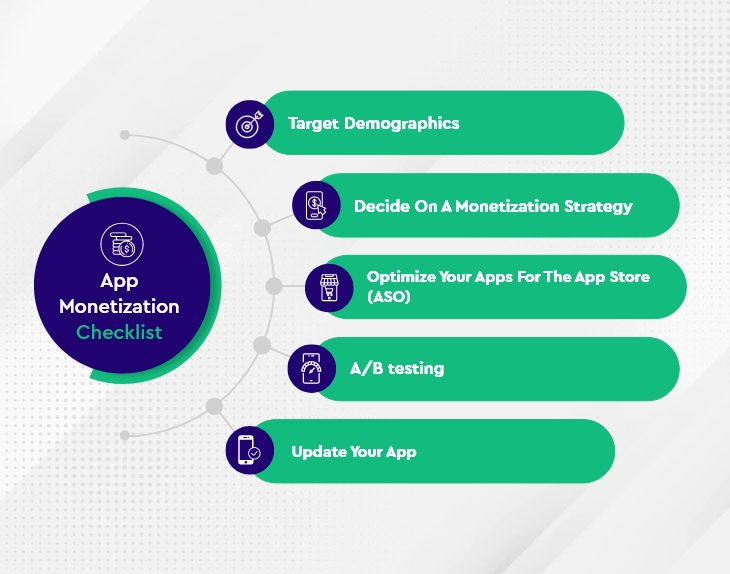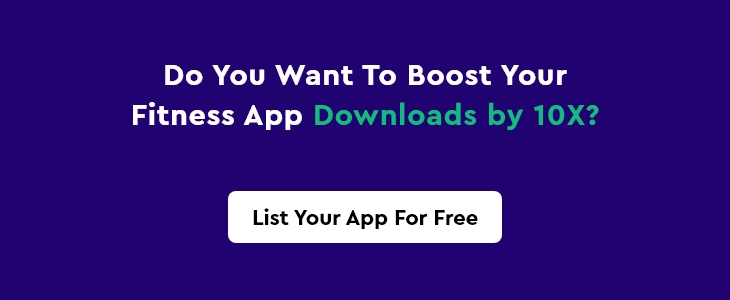By AppsHive Team

Owing to the pandemic's eye-opening impact, the global perspective on health and fitness has changed forever. Everyone realizes that your health comes first, and that it needs attention on a daily basis, not just when you or a loved one is on medication.
In June 2022, Research and Markets predicted that the global fitness app market will grow to reach USD 30.63 Billion by 2030, demonstrating that home-based fitness is here to stay. It's never been a better time to get into the profitable fitness app development business than it is today.
Developing an online fitness coaching app is one approach to achieving this goal. Consequently, developing your own fitness app is possible, but it takes thorough planning.
Only a well-thought-out fitness regimen by a fit coach app can help you attain your goals.
5 Most Important Aspects of a Fitness Coach App That You Need to Keep In Mind
1. Customized Profile
Personal information such as a user's name, birth date, locality, age, gender, current body weight and height, and email address is required to register or sign in to the app at a user's request. Some apps also support signing in using a social media account.
Users can create a profile and specify their preferences so that the fitness coach app can offer them relevant information. You'll see the number of courses you've completed and those you've started in the user panel.
2. Smart Features/Gamification
This application allows users to customize their training to meet their specific needs and interests. After completing the exercise, participants are given the option to select the level of difficulty they desire.
Thus, an efficient workout planner app can be planned by the algorithm. You have two options if you want to train your app to form workouts. To put it another way, you can write your training algorithm. It's possible to employ algorithmic marketplaces.
In addition, gamification in fitness coach app development services might encourage users to stick to the program. Users are more likely to spend time in an app if it contains game-like characteristics, which can be achieved through gamification. For example, reward systems employ badges and stories to motivate people to train regularly or stay to a plan.
3. Music And Timer Preferences
This is a great feature for determining training and rest intervals. You can use the countdown timer class on Android and the NSTimer class on iOS. The result is an exceptional fitness coach app development solution that you can deliver.
This feature makes it easy to listen to music while working out. The AVAudioPlayer class can be used to integrate this functionality into your iOS app. Use the multimedia framework to implement this feature in your body coach app on Android.
4. Voice Command And Fitness Trackers
The ability to pause and resume training at will is provided to users via this feature. They can switch between exercising and regulating the music at any time. Siri for iOS and Google Now for Android can be integrated into your personal training coach app to give voice control.
Due to their ability to sync with other mobile devices, wearable fitness devices such as bracelets, pulsometers, and others are becoming increasingly popular. Wearables allow users to track their progress, record their accomplishments, and utilize fitness software.
5. Paid Subscriptions
Such an app's admin page can be accessed with a unique ID. The developer must run several security checks to protect you and the admin panel's privacy. You can edit the user profiles section in the admin panel to add or remove any essential information for fitness coach app users.
You can mix multiple factors into a single account when building fitness tracking software—an example, a cloud-based app that you can use on various devices.
Types Of Fitness Applications
Everyone faces the challenge of exercising and eating healthily, regardless of whether they're attempting to lose or maintain their current weight. Maintaining a healthy lifestyle is difficult in today's fast-paced world. Here are some useful types of free daily workout apps you can try:
1. Training & Exercise
Such apps provide detailed training routines and instructional videos. Good apps in this area should be able to adapt to the needs of their users. Individual training plans should be generated and tracked based on the athlete's goals and initial data.
3. Apps For Branded Fitness Clubs
To better serve their customers, gyms and fitness clubs employ these apps. They do:
- Allow customers to pay for a fitness coach app subscription and personal training simply and conveniently.
- Give educational content in the form of articles and videos.
- Keep tabs on every person's progress.
- Live broadcasts from training sessions or seminars can be seen on this page.
4. Fitness And Nutrition Coach
A fitness coach app dealing with food and nutrition should also be adapted to the user's preferences and include a versatile collection of such crucial resources as:
- Calorie-counting device
- A collection of instructional videos for cooking.
- Suggestions for sports nutrition and dietary supplements.
5. All-In-One Fitness App
Such apps can mix the features of multiple fit-body coaching app categories at once. Some examples include personal training programs from prominent athletes, apps that show you how to get the most out of your food, and so on. The more features an app has, the easier it is to monetize the app by charging a fee for each one you want it to have.
E.g., The freemium model allows users to access only the most basic functions for free. It's also possible to charge for access to additional features.
Additionally, having a single universal fitness coach app instead of three is far more convenient for the end user. However, the cost of developing and maintaining these apps is far higher.
App Monetization Checklist

Developing a fitness coach app is still a long way off. Unless you're a non-profit with only altruistic motives, you'll have to make a profit once you've developed your product.
If you're in the world of business, you'll want to know more:
Step 1: Target Demographics
Make sure you know who your customers are, who your rivals are, and how they act. You should thoroughly study your target audience and compare it to your competitors' work. Consequently, you'll have access to industry best practices and a thorough understanding of what your app's customers anticipate.
Step 2: Decide On A Monetization Strategy
Several established app monetization models exist, such as paid apps, in-app purchases, and advertising. If you want to profit from an application, or if you want to sell it as a bonus to a larger product, you'll have to decide the best fitness coach app for you. If, for example, you own a chain of fitness centers and are working on a wellness app that will allow customers to reserve sessions, view class schedules, and get free training guidance, you'll gain online fitness coaching benefits over your rivals.
Step 3: Optimize Your Apps For The App Store (ASO)
Does a fitness coach app work? You must optimize your fitness coach app for store searches in the same way that you would your website's search engine optimization (SEO). In the App and Play Store, ASO is a collection of measures to improve metadata to increase search presence. The name and description of the application can be optimized, and relevant keywords can be included.
In addition, make sure you've included as many screenshots as possible; customers like to see exactly what they're getting before they download.
Step 4: A/B testing
Inquire about and receive feedback on how well the selected monetization models for apps are performing compared to expectations. Determine your key performance indicators (KPIs) and keep track of your progress.
Step 5: Update Your App
Take a step into the shoes of your target audience. How likely would you be to download a fitness coach app that hasn't been updated in a year? People are more likely to trust apps that are regularly updated and supported. The PDCA cycle can control and achieve continual improvement in this environment.
FAQs
Is the fitness coach app free?
Yes, partially. Workout apps are outgrowing the market share of traditional gyms because they are accessible, affordable, and feature-rich. Workout applications provide more convenient options, such as shorter sessions, without compromising quality. Workout apps are more convenient than a gym because you don't have to leave your house to use them.
How much does the app fitness coach cost?
An initial trial of the fitness coach app is free, and after that, it costs only $4.99 per week, or about $20 per month if you're serious about using it. Even better, the app offers recipes and instructions on how to prepare them.
Is an online fitness coaching platform worth it?
Yes. It is cheaper to workout with an online fitness coach than to work with an in-person coach. As a result, they are a valuable resource for motivating and encouraging you to stick with your fitness regimen.
How do you monetize your app?
App monetization strategies are an important factor in utilizing and generating revenue. Here are five fitness coach app-free tips:
- Start an affiliate program for your app.
- Use a "freemium" app model to charge for more features.
- To grow its user base, utilize both a free and a premium version.
- Subscriptions are a good way to get users to access your services.
- Be a mobile app reseller using a white label.
How do app owners make money?
Advertising, in-app purchases, sponsorships, and affiliate marketing are just a few methods to make money off free apps. For example, the top 200 apps bring in an average of $82,500 each day, while the top 800 apps bring an average of $3,500 per day.
